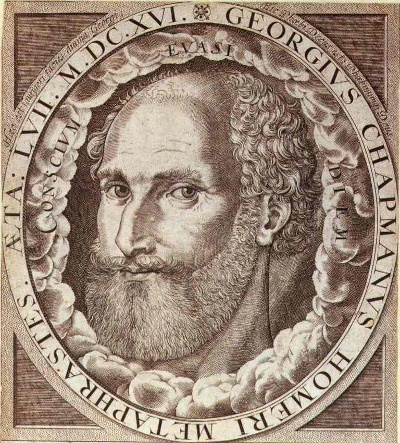John Keats, selected poems Contents
- Social and political context
- Religious and philosophical context
- Literary context
- Bright Star! Would I were steadfast as thou
- The Eve of St Agnes
- ‘Hush, hush! tread softly! hush, hush, my dear!’
- Isabella: or The Pot of Basil
- La Belle Dame Sans Merci
- Lamia
- Lines to Fanny (‘What can I do to drive away’)
- O Solitude, if I must with thee dwell
- Ode on a Grecian Urn
- Ode on Indolence
- Ode to a Nightingale
- Ode to Autumn
- Ode to Melancholy
- Ode to Psyche
- On First Looking Into Chapman’s Homer
- On Seeing the Elgin Marbles
- On the Sea
- Sleep and Poetry
- Time’s sea hath been five years at its slow ebb
- To Ailsa Rock
- To Leigh Hunt
- To Mrs Reynolds’s Cat
- To My Brothers
- To Sleep
- When I have fears that I may cease to be
On First Looking Into Chapman’s Homer: Synopsis and Commentary
Synopsis of On First Looking Into Chapman’s Homer
Keats describes how he has been a voracious and exploratory reader for many years – but the experience of reading George Chapman’s translation of Homer has been revelatory and he expresses his excitement in terms of an astronomer discovering a new planet or of the Spanish explorer and coloniser Cortez, who caught his first sight of the Pacific Ocean from the heights of Darien.
Commentary on On First Looking Into Chapman’s Homer
 Early in October 1816 Keats’ friend, Cowden Clarke, invited the poet to his rooms in Clerkenwell to show him a book that was being passed around the friends of Leigh Hunt. This was a 1616 folio edition of George Chapman’s translation of Homer.
Early in October 1816 Keats’ friend, Cowden Clarke, invited the poet to his rooms in Clerkenwell to show him a book that was being passed around the friends of Leigh Hunt. This was a 1616 folio edition of George Chapman’s translation of Homer.
Chapman (1560-1634) was a poet, translator and playwright who published complete translations of Homer’s Iliad (1611) and Odyssey (1614-15). These were remarkable for being not only a translation from one language to another but also for offering interpretations of Homer’s ethical and philosophical views in ways Chapman thought appropriate for his own age.
Keats and Clarke read the volume voraciously until six in the morning, and when Keats went home he immediately sat down and composed this sonnet. Obviously pleased with what he had written, he posted it straightaway to Clarke, so that it reached him at ten the same morning. Keats believed that this was the most beautiful poem he had written up to that point in his life.
Glossary
Realms of gold: not only a reference to El Dorado but almost certainly the gold-embossed spines of books which Keats would have found in his school library and elsewhere
bards: wandering poets who told heroic stories
in fealty to: as a tenant whose loyalty was to a feudal lord
Apollo: Greek god of music and poetry
demesne: a district, region or territory - but may also convey the meaning of ‘possession as of right’, as in the feudal sense
serene: air
stout: brave
Darien: a reference to the wild region south and east of the Panama Canal between Darien, a town in the middle of the isthmus, and Columbia
Cortez: Keats’ reference is not strictly accurate: it was, in fact, Balboa who discovered the Pacific Ocean in 1513, but none of Keats’ contemporaries seemed to notice the error. Cortez (1485-1547) was a Spanish explorer and conqueror of Mexico.
Investigating commentary on On First Looking Into Chapman’s Homer...
- How important do you think it is to know the biographical and literary contexts for this poem?
- How does this poem convey Keats’ excitement at discovering this translation of Homer?
- This sonnet is often considered to be Keats’ first major poem. What qualities does it have which put it in this category?